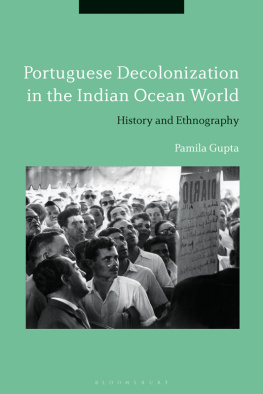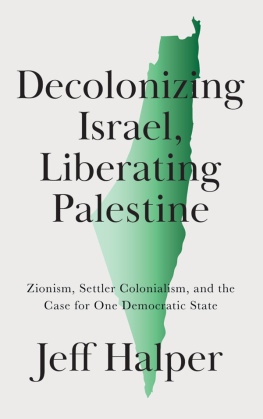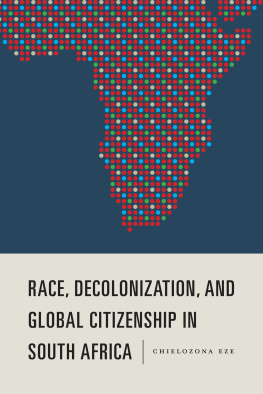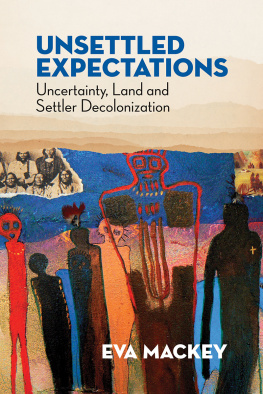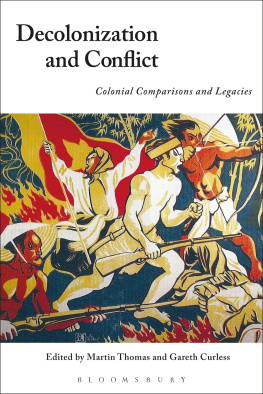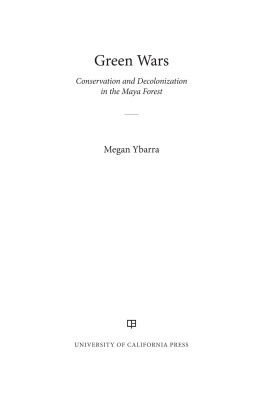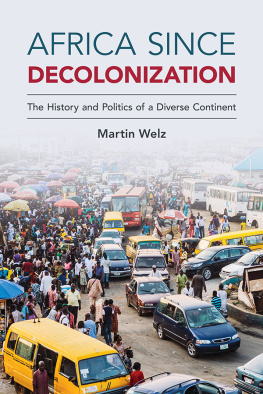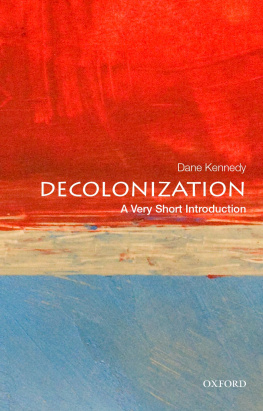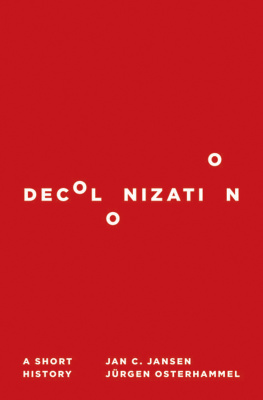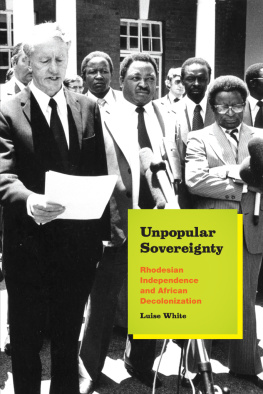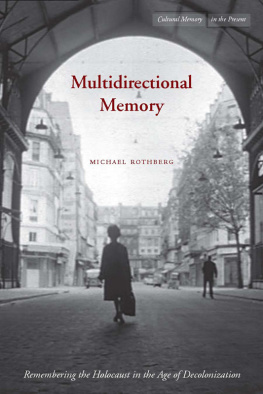Portuguese Decolonization
in the Indian Ocean World
Portuguese Decolonization
in the Indian Ocean World
History and Ethnography
Pamila Gupta

for Juan
This book was conceived in the moment that I first saw a photograph by Ricardo Rangel, the one that graces the cover of this book. His photograph accessed what I was trying to think and write about decolonization as a way to connect India and Southern Africa historically and ethnographically. This book has been in the making over the last ten years; different versions of essays were written along the way. I always had the idea that these essays were connecting slender threads across the Indian Ocean, to use the words of Engseng Ho.
An earlier version of .
An earlier version of was published as Some (Not so) Lost Aquatic Traditions: Goans Going Fishing in the Indian Ocean, Interventions 16, no. 6 (2014): 85476.
An earlier version of was published as Decolonization and (Dis)Possession in Lusophone Africa, in The State and Mobility in Africa, edited by Darshan Vigneswaran and Joel Quirk (Philadelphia: University of Pennsylvania Press, 2015), 16993. Copyright @ 2015 University of Pennsylvania Press.
An earlier version of was published as Going for a Sunday Drive: Angolan Decolonization, Learning Whiteness and the Portuguese Diaspora of South Africa, in Narrating the Portuguese Diaspora: Piecing Things Together, edited by Francisco Fagundes, Irene M.F. Blayer, Teresa F.A. Alves and Teresa Cid (New York: Peter Lang, 2011), 13552.
Parts of are also derived from Departures of Decolonization: Interstitial Spaces, Ordinary Affect, and Landscapes of Victimhood in Southern Africa. In Histories of Victimhood, edited by Steffen Jensen and Henrik Ronsbo (Philadelphia: University of Pennsylvania Press, 2014), 198217. Copyright @2014 University of Pennsylvania Press.
NRF Rated Researcher funds enabled my April 2016 trip to Beira, Mozambique. WISER and RINC funds generously provided for multiple trips to Maputo and Catembe between 2007 and 2011.
I would like to thank my anonymous reviewers at Bloomsbury Press for their productive comments in revising this book manuscript, Caroline Jeannerat for her brilliant editorial work in helping turn this manuscript into a book and my patient and persevering editor Emma Goode at Bloomsbury.
I would like to thank Richard Rottenburg at the Martin-Luther University in Halle-Wittenberg, Germany, and my Mercator fellowship during 1 April to 15 June 2016 in Halle, Germany, which provided precious time and a lovely space to write and present an early draft of this chapter to the LOST reading group.
I would like to thank the late Ricardo Rangel, whom I was fortunate enough to meet in Maputo in 2008. I would also like to thank the Centro de Documentao e Formao Fotogrfica in Maputo, Mozambique, for granting copyright permission (dated 26 April 2017) to reproduce his beautiful images throughout this book.
I want to thank WiSER for providing such a nurturing environment and vibrant corridor in which to develop this book: Keith Breckenridge, Catherine Burns, Najibha Deshmukh, Adila Deshmukh, Sarah Duff, Shireen Hassim, Jon Hyslop, Jonathan Klaaren, Hlonipha Mokoena, Irma du Plessis and Deborah Posel. A special thank you to Sarah Nuttall for her unwavering support and Achille Mbembe for his invaluable insights. Additional thanks go to Ronit Frenkel and Julia Hornberger for their encouragement and friendship over the last ten years.
I thank Isabel Hofmeyr for always sharpening my Indian Ocean scholarship and Euclides Gonalves for being a reader of my work and reminding me what is important in Mozambique. I thank Padma for her patience when Mama goes off to work and Juan for pushing me to dwell inside photographs.
I am grateful to all those persons who shared their stories of migration and opened their homes to me in Maputo, Catembe and Johannesburg, especially Diogo, Dlia, Rui and Teresa. I would also like to thank several Mozambique specialists who have shaped this project along the way: Vanessa Dantas e S, Paolo Israel, Pedro Machado, Pedro Pombal and Caio Simes de Arajo.
I devote this book to the late memory of Ricardo Rangel whose photographs started me on this project and Michael Pearson for his enduring mentorship.
At the book launch of his first African edition of On the Postcolony in 2015, Achille Mbembe asked the telling question, Has decolonization pushed [studies of] postcolonialism out? I start this chapter with Mbembes provocation as a way to suggest that scholars located in South Africa and the larger Global South, at a moment of deep uncertainties and new antagonisms particularly in light of the recent Rhodes Must Fall campaign at the University of Cape Town (UCT) in 2015 and the Fees Must Fall campaign taking place at the University of the Witwatersrand (Wits) since 2016 are rethinking decolonization itself and how to go about transforming certain spaces, not only those of the university. Did we jump too quickly into the global condition of postcoloniality? Did we, along the way, somehow sidestep the processes of decolonization that took place prior to this shift? And are we now seeing a reverse trend (a backwards move), one that looks at decolonization as setting the conditions of possibility for postcoloniality? Possibly, we need to take up Mbembes sustained critique and dwell on, or rather spend some time in this interim space. And perhaps there is an urgency to do so as we increasingly distance ourselves from these historical configurations that were anything but homogenous across time and space. This book is one such attempt.
Almost ten years ago, after I first moved to Johannesburg, a South African friend recounted to me his travels on a motorbike through Mozambique in the early 1990s. One of the stories that made an impression on him came At the time, I found the story deeply disturbing yet fascinating, for it showcased many of the aspects of decolonization that I was beginning to conceptualize: that with the end of colonialism comes optimism, frustration and uncertainty simultaneously; how personal things can be read to understand colonialism as an individual form of possession and its fallout (decolonization), one of dispossession; the stakes involved for those departing and the resentments they carry when being forced to leave a place called home; the shifting moral political landscape that comes with decolonization and an inability to articulate colonial loss for some; and finally, a focus on who and what remains, less as a form of failure or ruin but of potentiality. Thus, I recount this travellers tale to suggest some of my larger interests and investments in this book that connects India and Southern Africa historically and ethnographically via the Indian Ocean through the analytic of decolonization and the category of experience. By locating its politics in the personal, in everyday moments and acts, this story also illuminates certain aspects of decolonization that have yet to be researched and that, in some sense, point to its unresolved affective qualities (of messiness, trauma, loss and resilience) that are part of postcoloniality itself.
In the following chapter, I suggest that it is these kinds of analytic entry points accompanied by rich ethnographic details that have the potential to shed light on the long-term consequences of decolonization. Specifically, I approach decolonization as a historical event and ethnographic moment; attend to the experience of the transfer of state power; and focus on decolonization as involving the mobility of people, ideas and things, and with an emphasis on migration and diaspora. By way of organization, I address three different topics in this introductory chapter: first, I look at writings on and about decolonization as well as my own intervention in this area of scholarship; second, I set up three conditions of Portuguese colonialism which directly shape how we write about its decolonization processes; and lastly, I provide a conceptual outline of the book entitled
Next page
